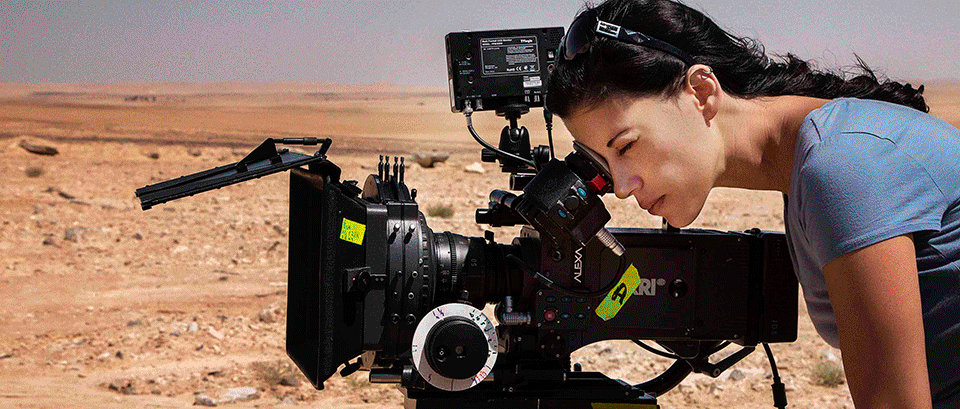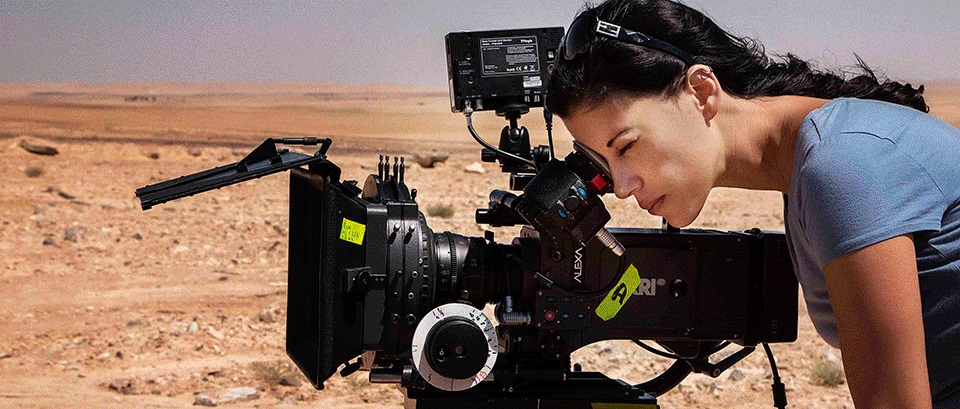
When her short film Make a Wish premiered at the Sundance Film Festival in 2007, Cherien Dabis established herself as a filmmaker to watch. The Palestinian-American director was born in the U.S. and grew up spending summers in Amman, Jordan. No stranger to the industry, Cherien was previously a writer for groundbreaking TV series The L Word.
Sure enough, her first feature film Amreeka debuted in 2009 to critical acclaim, for which she won the coveted Fipresci Prize at the Cannes Film Festival. And last week, Cherien screened her second feature film at the Dubai International Film Festival called May in the Summer – a complementary foil to Amreeka.
In this Q&A, Cherien discusses her experiences behind – and in front of – the camera, her take on Arab cinema and her advice for aspiring female filmmakers in the region.
What was it like being in front of the camera in May in the Summer and Three Sisters rather than just behind it? What do you prefer?
It was certainly intimidating, especially at first. I trained for about a year and a half to be sure I could pull it off, especially as I’d be directing myself in May in the Summer. I wanted to gain experience in the back and forth of acting and directing simultaneously. At the end of the day, it was tremendously fulfilling to actively participate in the whole of the creative process. Acting – in general – has informed my writing and directing. I think it’s important to gain experience in every part of the process. It makes you a better, stronger storyteller.
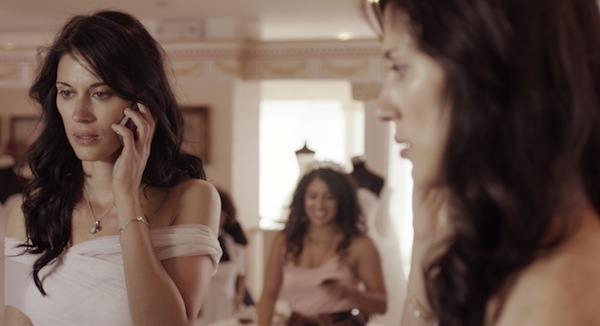
Three Sisters was great fun, as I was reunited with my lead actress from Amreeka Nisreen Faour. She played my older sister! As I was simply acting in the film (as opposed to wearing multiple hats), I had much less responsibility and could focus solely on my role. It was a welcome departure from the experience of my film, which I wrote, directed, acted in and produced. Of course it was the first time I was acting for another director, so it wasn’t without its challenges. It was just rewarding to be able to focus deeply on one aspect of the craft.
I’m not sure I prefer one aspect of the process to another. Writing is what I get to do most often, so it’s the part I feel most comfortable doing. Directing is invigorating and addictive. I feel totally in my element when I’m doing it. Acting has allowed me to look inward, to get to know and understand myself on a different level. And in that way, it’s led to more personal growth than I ever could’ve imagined.
You’ve tackled being Arab in America in Amreeka and being Arab-American in the Arab world in May in the Summer, what other themes do you want to address in your future work?
I definitely plan to continue to tackle the theme of family dysfunction and otherness, though in different contexts. With these first two films – which happen to go together like a diptych – I’ve closed a cross-cultural chapter. I’m now moving on to English language American films and foreign language international films. With my American projects, I’m exploring themes of love and relationships. With my current Palestine-based projects, I’m interested in looking at the absurdities of life under occupation, what it’ll take to rise above the anger and the violence and whether or not forgiveness will ever be possible. In other words, how to do move forward? What does our future look like?
Why did you make these two films? Why do you feel they are they important?
Growing up Palestinian in the diaspora led to my need to tell these stories. Traveling back and forth between the vastly different worlds of rural Ohio and urban Jordan, I spent my adolescence navigating the identity politics of being considered an outsider no matter where I went. Art was my chosen form of self-expression, my way of attempting to make sense of my own existence, attempting to bridge the warring sides of my own identity.
Even still, I didn’t become linked to film and media until the 1991 Gulf War, when the images and stereotypes of Arabs in the news swelled to unprecedented levels, and my experience in Middle America changed drastically. My family went from being treated as friends and neighbors to pariahs and outcasts. Hostile, anonymous notes and death threats were left in our mailbox. The Secret Service visited my high school to investigate a rumor that my older sister threatened to kill the President. (It’s the experience that inspired my first film Amreeka.)
As a 14 year-old, I began to understand the power of film and television and the labels and stereotypes they propagate. I realized that nowhere in popular culture was my experience depicted. That’s when I decided that I wanted to give voice to the millions of people virtually missing from America’s cultural landscape. These stories are important because they do just that.
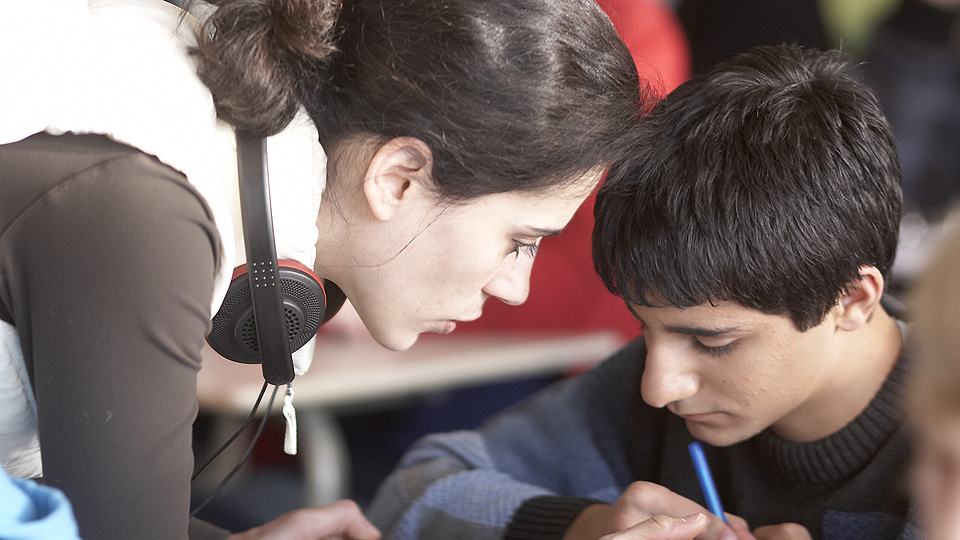
Define “home”.
A familiar place, one in which you feel you belong. Where you can be yourself. Sometimes that “place” for me is simply my mother’s voice on the other end of the telephone.
Do you have any plans for Arabic cinema?
There certainly seems to have been a renaissance in the last several years. But I’d like to see us fully enter a golden age of Arabic cinema, one where we’re a full-fledged self-sustaining industry. Where we find our funding entirely within the region and enjoy commercial success in the Arab world.
What are your top three favorite films being featured at this year’s DIFF and why?
I’ve come nowhere near seeing all the films being presented at DIFF this year, so that’s an impossible question to answer. But the ones I’m most excited to see include Philippe Aractingi’s Heritages, because it sees a great Lebanese director making a personal movie about his own family. That’s a brave choice that I can relate to. I’m also thrilled that Hany Abu-Assad’s Omar opened the festival. It’s the first Palestinian film fully funded by Palestinians. So aside from the power of its storytelling, it’s a historic milestone.
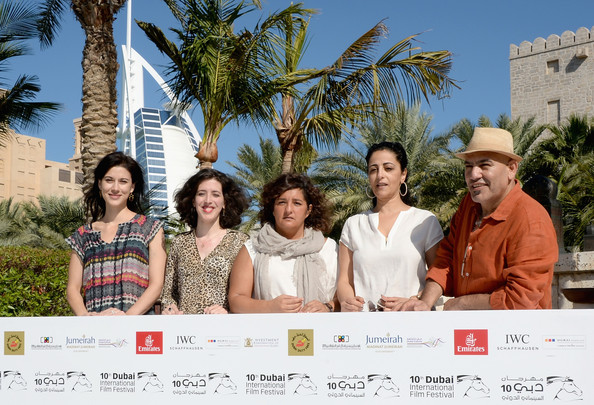
Would you trade NYC for a city in the Middle East? Where would you live?
I’ve always wanted to live in Beirut. Not only is it a stunningly gorgeous city with both sea and mountains, it’s open, liberal and tremendously cosmopolitan with a vibrant creative community and a joie de vivre unparalleled anywhere else in the Middle East.
Who and what inspires you?
My family. Real people. Current events. The resilience of the Palestinian people. Anyone with a sense of humor. Works of literature. Music. Fellow artists.
You are one of a small number of Arab female filmmakers. Any words of advice for those who aim to follow in your footsteps?
Trust yourself. Challenge yourself. Take risks. Defy your own doubt.
Give us the scoop on your next big project.
I’m working on an adaptation of Suad Amry’s internationally successful award-winning memoir Sharon and My Mother-in-Law. It’s a refreshingly funny and poignant account of everyday life in the occupied territories.
WE SAID THIS: Check out the Top 10 Arab Films of All Time.


